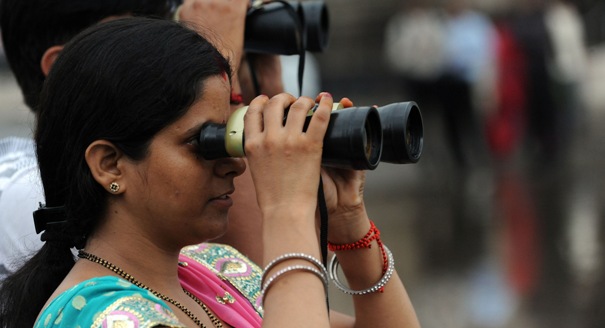In the time of crisis there is an urgent need for the correct analysis and prognosis. The Ukrainian events demonstrated the dominance of voices from Russia and the West in world discussions about this country. It’s understandable. Russia has close historical and cultural links with Ukraine. The West has a strong school of expert on the Soviet and Russian history and politics. Yet this dominance shouldn’t let us be deaf to the voices from other countries, because they can help us to clearly see strong and weak sides of the existing ideas on Ukraine as well as to be learned about alternative approaches to this crisis. The voices from India are of particular importance due to long tradition of non-alignment policy of this country and its good relations with both USSR/Russia and the West.
Regime Change
In India there are two dominant views on the reasons of the crisis. One of them was offered by Vinay Shukla, a journalist, who spent many years in USSR and Russia, presenting two biggest wire services. According to him, “this is the classical case of regime change in the uni-polar world and the first such case in the European democracy's ' 'twilight zone' after the decimation of Yugoslavia into smaller states loyal to the West.” He argues that Ukraine “is a glaring example of how the West can change its view about an accepted democracy, if its leader fails to fit into a larger game plan and cast its weight behind the violent street protesters to overthrow an unfriendly regime.” Alois Philby, a blogger from the Counter Currents, add to this the factor of the Western policy in the Eastern Europe: “As far as the Americans and the European Union are concerned, it is a question of pursuing old-fashioned power politics vis-à-vis Russia with a view to minimising the latter's influence in Europe.”Threat for President Vladimir Putin’s Rule?
Another explanation, presented in the Business Standard daily, places the responsibility for this crisis on Moscow. According to this view, it is “largely the creation of Mr Putin's transparent desire to establish a sphere of influence that will benefit mostly Russia and a few Ukrainian oligarchs east of the Dnieper River.” Gwynne Dyer, a columnist of the Pioneer daily wrote in this regard: “More importantly, Mr Putin does not want to have a large, prosperous and democratic country with strong EU ties on Russia's own border. Especially if it is another Slavic country that also used to be part of the Soviet Union, and it got its democracy as the result of a largely non-violent revolution carried out in the main square of the capital city. The example would be very dangerous to his regime."
Ukrainian Role
Vinay Shukla believe that the problem for such countries like Ukraine is of self-identity. He argues that “this is easily achieved through hostile policy towards big power next-door than creating a highly successful state to justify partition of people with common history.” He recalls that in August 1992 he supposed that “relations between Ukraine and Russia could develop along the India-Pakistan track, albeit with own specifics.” In that time there were parallels between two “K” (Crimea and Kashmir) in the Russian-Ukrainian and Indian-Pakistani relations.
What’s Next?
Depending on the views on Russian and Western role in Ukraine, Indian authors see perspective for this crisis. According to the Business Standard, “much depends on what Mr Putin does next”. The newspaper asks: “Will he cause Ukraine to split along ethnic lines?”
Vinay Shukla doesn’t agree with this. He argues that “further developments depend on the line of action taken by the new authorities in Kiev under the guidance of their Western mentors, who are quietly rejoicing the victory in the battle for Ukraine, which can turn out to be a pyrrhic, sparking territorial disputes in East Europe.” According to him there are signs of the Russian efforts to seek a diplomatic end to the Ukrainian crisis.
Message of Non-Violence
Maleeva Rebello, a columnist from DNA India, discuss three cases of Ukraine, Thailand and Venezuela, recently overtaken by the mass violence. According to her opinion, these cases sent “the message to other nations that force may not be the right way to express discontent against the policies of the ruling class.” Her conclusion is worth to be listen in Kiev, Brussels, Moscow, and Washington: “Perhaps the teachings and ways of Nelson Mandela and Mahatma Gandhi who were the greatest preachers and practitioners of non-violence need to be used in these three countries as a means to peacefully fight against anti-people government policies. As protests continue in these countries, the world waits and watches as various other nations try to broker peace.”





